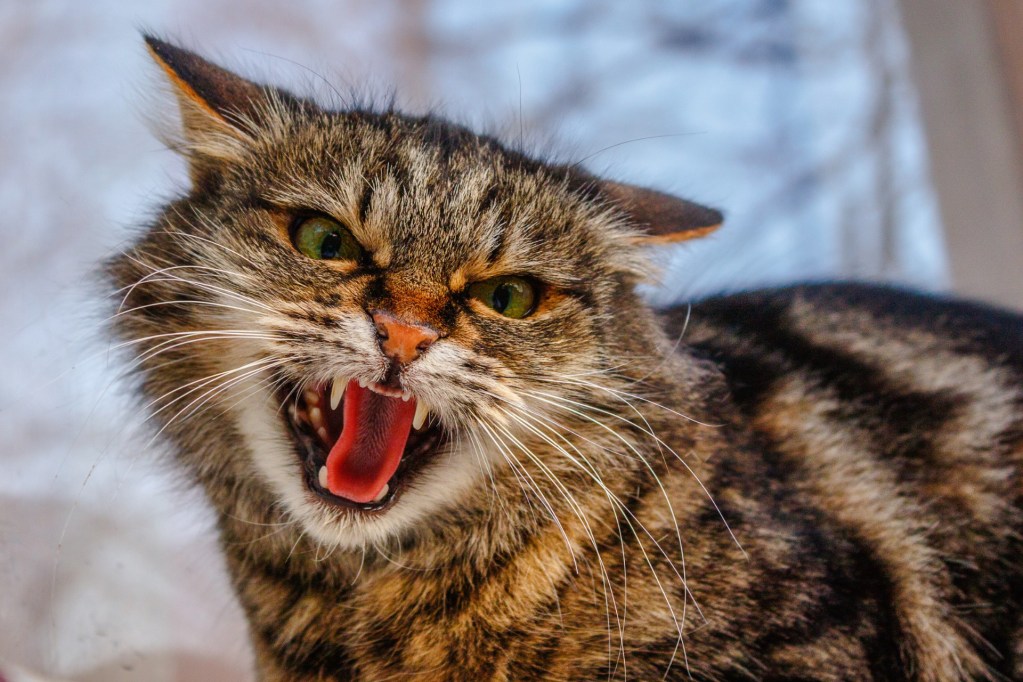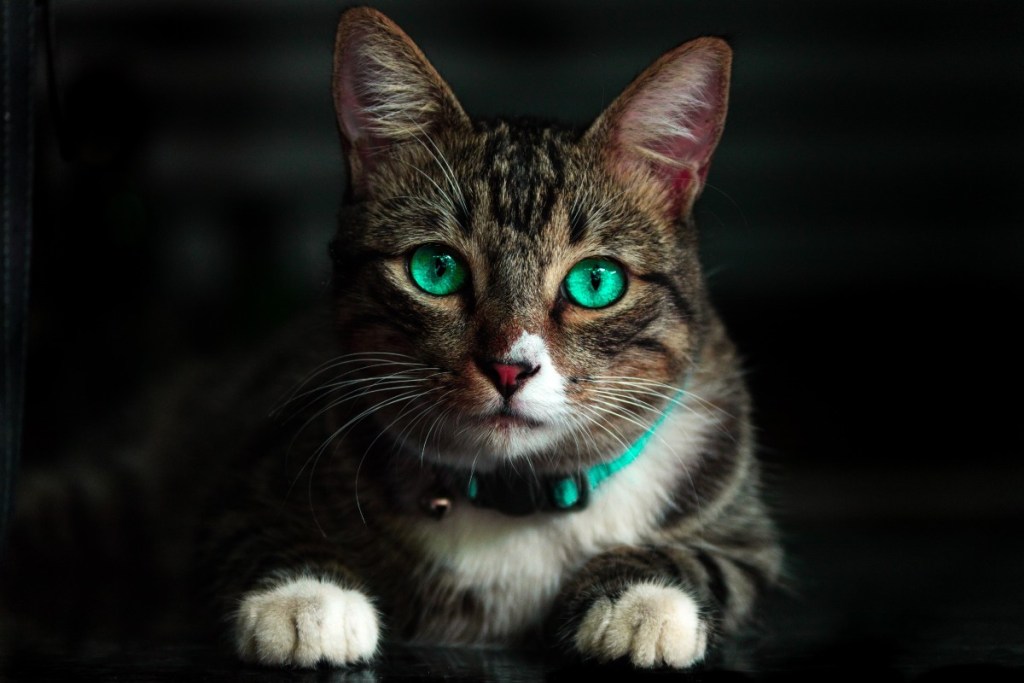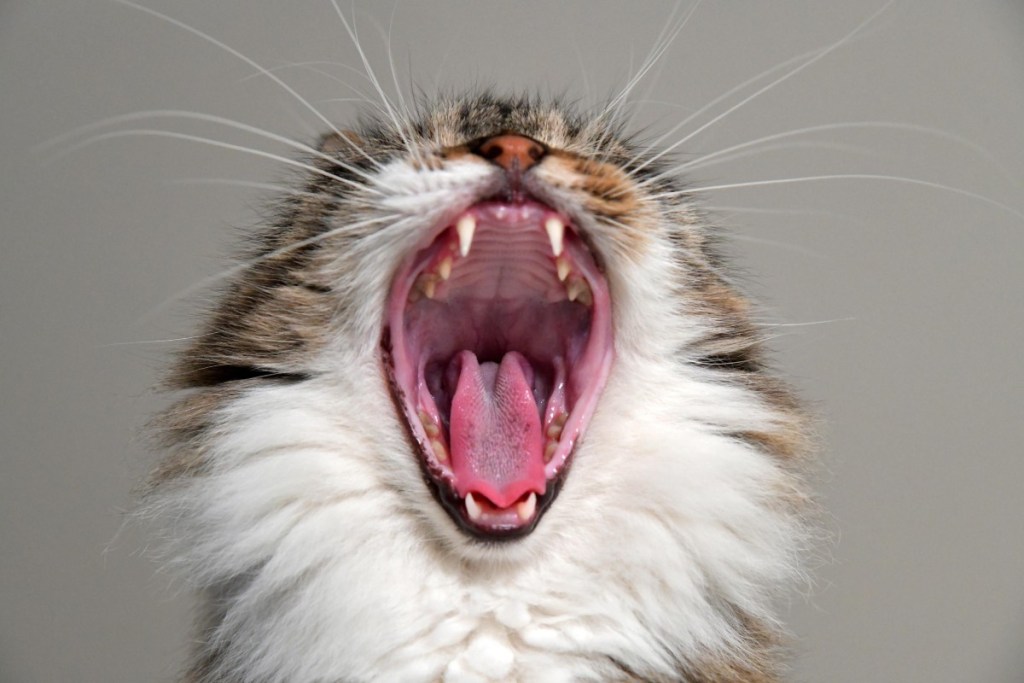
You’re just sitting on your couch, scrolling through your phone, and looking at old photos of Grumpy Cat (RIP). Out of nowhere, your cat jumps on you — and it’s not to cuddle. Their claws are out, and they’re hissing. Then, they go in for a bite.
After muttering a few words you can’t say in polite society, you may wonder, “Why is my cat aggressive all of a sudden?”
After all, you got up on your cat’s terms — at 5 a.m. — and fed them. The litter box is clean. If your cat is usually sweet or neutral towards you, sudden aggression may catch you off guard. You may also worry. Your kitty may be a fraction of your size, but infected scratch marks and bites can cause cat scratch fever, which may lead to flu-like symptoms.
In other words, you’ll want to figure out what triggered the episode so you can avoid it in the future. Let us help you play detective.

Why did my cat attack me for no reason?
Cat aggression happens more than you may think. Behaviorists say it’s the second-most reported behavioral challenge they see in kitties. You may believe you’ve done everything right — and you are certainly trying your best — but there’s usually a reason behind it. A few common reasons for cat aggression are:
- Play. Some cats didn’t spend much time around their littermates — perhaps their mother abandoned them. As a result, they may try to play rough by hiding and stalking you before pouncing on you.
- Fear. Scared cats can become aggressive as a means of protection. Your kitty may have heard a loud noise, or perhaps they do not want to get in their kennel to go to the vet.
- Petting. Petting-induced aggression occurs when a cat doesn’t enjoy those snuggle sessions as much as you do. It’s unclear why some felines display petting-induced aggression, but it can rear its ugly head if the cat is overstimulated or during grooming sessions.
- Redirected aggression. It may not have been anything you did at all. This type of aggression happens when the cat can’t take its aggression out on the direct source, like a stray kitty in the backyard, so you become the scapegoat.
- Pain. Sometimes, cats become aggressive if they are in pain. They may hiss, especially if you touch the area that hurts.
- Territory. Cats have their spaces. If you infringe on a spot they covet, they may become aggressive.

Why did my cat get randomly aggressive?
Though cat aggression is common, it may be rare for your pet. An attack can feel random, but your fur baby may have been sending you signals of their displeasure for a while. Could you possibly have missed one of these warning signs?
- Dilated or constricted pupils
- Stiff stance and tail
- Direct stare
- Growling, howling, or yowling
- Raised hackles
- Bushy tail
- Crouching
- Tucked head
- Retracted whiskers
Keep an eye on your pet’s body language moving forward. If it continues to happen with seemingly no warning, you’ll want to visit your vet to see if the pet has an underlying condition causing sudden aggression.

How do you stop sudden aggression in cats?
You love your cat and can forgive their transgressions, but understandably, you want to nip this aggressive behavior in the bud. Here are some ways to do so:
- Distract the cat. Aggression isn’t always so sudden. If the cat displays signs of aggression, try throwing something like a beloved toy toward them to redirect their attention.
- Play with them. Sometimes, bored cats can become overstimulated as they attempt to entertain themselves. Keeping them entertained, such as through play, can prevent sudden aggression and enhance your bond.
- Give them space. You probably have a safe space to go when you are feeling stressed. Your cat deserves the same. A cat cave, window perch, or tall tree can allow them to feel secure. Also, make sure they have their own place for their food.
- Visit the vet. Your cat may have pounced because they aren’t feeling well. A thorough vet exam can rule out — or help catch — any conditions.
- Call a pet behaviorist. A behaviorist who specializes in cats can help you identify what’s triggering your cat’s aggression and give you tips to help Kitty cope.

Will catnip calm an aggressive cat?
If your cat pounces, it might be a little too late to reach for the catnip, but supplements can help manage kitty anxiety. Some pet parents prefer treats with catnip and CBD for best results (make sure to purchase from a reputable source). When your sweet pet starts to seem nervous or you know in advance that there will be a trigger, try out a few different options to see what sticks. It’s possible your feline will have an obvious preference or that you’ll notice a big difference. Still, helping your cat deal with her symptoms isn’t a substitute for diving into the deeper underlying causes.

Our final thoughts on aggressive cat behavior
If your usually sweet feline attacks you unprovoked, you may wonder, “Why is my cat aggressive all of a sudden?” The truth is, cat aggression often isn’t random, even if it feels that way to you. Cats typically display signs they’re upset about something before they attack. Body language cues include a change in pupil size, crouching, direct stares, and a stiff posture and tail.
There are several reasons for cat aggression, including fear or pain. Try distracting the cat with a favorite toy when you notice signs of irritation. Giving them space and playing with them can also help reduce stress. If you’re unsure what’s going on, take your kitty to the vet. They may be sick or in pain, and the aggressive episode was their way of trying to tell you since the two of you don’t speak the same language.
Editors' Recommendations
- Why do cats twitch in their sleep? The real reasons behind this curious behavior
- Why do cats cover their face when they sleep? This adorable behavior, explained
- Why do cats lick themselves? It goes beyond just cat grooming
- How long do cats live? The answer may actually depend on their human parent
- Why do dogs hate cats? The truth behind this age-old grudge




